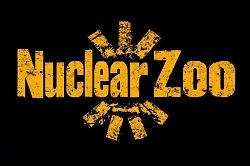I’ve always leaned toward the cerebral rather than the flashy when it comes to science fiction. The careful construction of worlds fascinates me more than chaos. I’m not one for explosions, alien invasions, or noisy starship battles.
They have their place, sure—but for me, science fiction’s true power lies in exploring the “what ifs” of our universe with care and thoughtfulness.
It’s about those big questions, examined through science and speculative thinking. That’s what fuels my passion as a science fiction critic.
Growing up, I wasn’t drawn to comic books or superhero movies. Instead, I found myself lost in the worlds of Arthur C. Clarke and Isaac Asimov.
I’d follow their logical plots to what felt like personal utopias waiting at the end of those pages. Their stories felt both fantastic and possible—a feeling that’s stayed with me as I’ve worked through the layers of modern sci-fi. With each new story, I ask myself, “What makes this tick?” If a fictional world lacks scientific rigor, it fails to create a believable foundation for its fantastical elements.
When I write essays and reviews, I’m trying to build something that goes beyond standard literary criticism of new sci-fi films or novels. I’m constructing a bridge—one I could work on forever, if I’m honest. My goal is to transport sci-fi lovers who appreciate the science in their fiction to the other side.
There, they’ll find my reviews and essays which, if I’ve done my job right, offer much more than boring summaries of the latest sci-fi offering. At their best, they’re careful examinations of the intricate storytelling structures that unfold before us. In doing this, I hope to move beyond what’s becoming a standard dismissal of “sci-fi for your brain.”
My goal is simple: raise the level of discussion about science fiction.
I want people to look past the visual effects and see the concepts and possibilities that make this such a rich genre. Science fiction gives us a unique lens to examine our own world—our societies, values, and future. I try to show that taking sci-fi seriously isn’t just reaching for the stars; sometimes it’s about believing in the science that makes our future possible.
Scientific realism matters so much in my approach because the best sci-fi isn’t just science wearing a story costume while playing in the sandbox of narrative convenience. The best works are built with science woven throughout, creating a believable whole, even when they explore concepts beyond our current understanding of physics. Take Andy Weir’s The Martian—his portrayal of Mars survival is rooted in practical science.
When he asks “what if” and follows through to its conclusion, he’s really asking, “what would it actually take to survive there?”
I often find myself frustrated with movies and shows that sacrifice science for spectacle. They might be fun to watch, but I finish feeling I can’t take them seriously beyond mere wish fulfillment. If there’s no attempt to ground a story in basic physics, chemistry, or biology—especially regarding human survival in space—why set it there at all?
Watching The Expanse, I’m consistently impressed by its attention to detail, from gravity’s effects on the human body to the silent vacuum of space. These details might seem trivial to some, but together they create a world that feels real—a story that pulls you in because it respects the rules. Good scientific accuracy is just one piece of great sci-fi, though.
A story’s complexity, structure, and characters can be just as crucial as getting the facts right. I can’t exactly explain why some works feel philosophical while others don’t, but I recognize that quality when I experience it. The best sci-fi affects me like great music—every beat serves its purpose, building toward that profound moment at the end.
Let’s look at Arrival, the 2016 adaptation of Ted Chiang’s “Story of Your Life.”
I’ve seen many stories try to be complex just for complexity’s sake, but plot twists and confusing timelines don’t make a good story by themselves. A good story needs a beginning, middle, and end. A silly story pretends to be profound while actually offering nonsense.
When I analyze stories, I see them as reflections of their creators. Some minds dress up nonsense as profundity, while a rare few actually achieve depth. My reviews try to separate the silly from the profound, and I’ve never lacked for stories to evaluate.
Then there’s the philosophical side of sci-fi—the aspect that truly sets the genre apart. My favorite part of writing about sci-fi is exploring how these stories reflect our deepest hopes, fears, and ethical questions. At its best, sci-fi works as a thought experiment, letting us explore mind-bending concepts like consciousness, AI ethics, or genetic modification consequences.
Take Ex Machina, which explores AI consciousness and the ethical questions facing its creators. In my essay on that film, I connected the story to philosophical theories about personhood. I’ll admit I’m not always certain about what these theories involve.
Hearing different perspectives helps me make sense of the ambiguous aspects of our stories. This includes whether they’re told from a first-person view or not.
As a writer, nothing pleases me more than when readers actively engage with my work rather than passively consuming it.
When something I’ve written makes someone pause, reconsider, or reimagine their understanding, I know I’ve succeeded. When I write about “Black Mirror,” I’m not just summarizing plots. I’m considering what the stories might tell us about ourselves, hoping to spark meaningful discussions.
Ultimately, I’m not just someone who writes articles—I’m someone who thinks deeply through articles. And what occupies my thoughts most is science fiction—it’s my true passion. I don’t just want to write science fiction criticism; I want to write science fiction philosophy.
I truly believe that behind every science fiction story lies an invitation to explore and debate profound, world-changing questions that many other genres overlook. I want readers to see and understand this too.
Part 3: Analyzing the Key Ideas of Jaxon Trent and How They Hook His Audience
The heart of my work rests on themes that create something special—a unique approach to sci-fi criticism.
My style emerges from three key ingredients: scientific realism, narrative complexity, and philosophical depth. From these, I create a space for conversation and ideas. I’m not just pointing out flaws or celebrating strengths; I’m engaging in a kind of verbal jazz where we collectively examine what makes sci-fi worthwhile.
How Scientific Realism Helps to Create Convincing Illusions of Life in Virtual and Augmented Reality
When I talk about scientific realism in science fiction, I mean more than accurate technology or physics. For me, realism grounds the audience in the story, providing a foundation for exploring the unknown. It’s about creating worlds where speculative elements feel earned and believable, given our current scientific understanding.
And when dealing with the genre’s physics, solar systems have practical limitations that shape both future and past narratives. In one of my articles on The Expanse, I examined how the show handles zero-gravity combat and the realities of asteroid belt living. The series doesn’t shy away from space’s deadliness—how human bodies can only adapt so much to non-Earth conditions like zero gravity.
It acknowledges that space living requires extreme adaptations. When the show creates tension, it feels genuine because we understand that these challenges could actually happen. I found the show remarkably intelligent in this approach.
Realism isn’t just about accuracy; it’s about using specific details to enhance storytelling. Consider The Martian. I praised the film for its meticulous logistics.
These details don’t just show off research—they create genuine narrative tension, making the film emotionally powerful.
When I describe these elements, I try to show their clear importance to the story.
The Complicated Thing of Narrative Structures
A well-structured narrative works like a well-engineered machine.
Each part serves a purpose and works with others to move the story forward. I love narratives that challenge audiences with complex structures and layered plots. Dark is a perfect example—a series that handles time travel like a complex equation.
It doesn’t hold your hand, which I appreciate. When writing about Dark, I focused on how its timeline complexities serve themes about determinism, using the story’s tangled nature to reflect characters’ struggles with fate. However, complexity for its own sake can trap a story, and many sci-fi tales fall into this trap.
As a critic, I try to determine when narrative complexity serves thematic depth and when it’s just creating noise. I’ve examined Christopher Nolan’s time-bending film Tenet. While its structure is technically impressive, I question whether it actually supports the story’s emotional core or simply gets lost in its own mechanics.
These are the questions I tackle in my writing and discussions with colleagues. In my view, the best sci-fi narratives dare to play with structure while staying rooted in character and theme. Writing about Westworld, I was fascinated by how its non-linear storytelling reflects themes of memory and identity.
The time jumps aren’t just showing off—they put viewers in the same confused state as the hosts, who struggle to distinguish reality from memory. This alignment between form and content represents storytelling at its finest. The relationship between philosophy and science fiction goes back decades.
When done well, sci-fi transforms abstract philosophical questions into something human and relatable. My love for the genre partly comes from that bridging ability—telling stories connected to life’s biggest questions. I sometimes mention philosophical theories in my accessible articles—like how Her explores posthumanism and what love means when the line between human and machine blurs.
One of the most rewarding aspects of writing about sci-fi’s philosophical themes is the interaction with readers. This was particularly true when I published a piece about Ex Machina a few weeks ago. I offered my interpretations of the film and its philosophical themes in a more engaging way than some academics have managed.
After sharing my thoughts, the real fun began—readers brought their own perspectives, creating a wonderful dialogue. [ Image 7 ]
When discussing Blade Runner 2049, I enjoy exploring its identity themes. The film uses replicants to question what it means to be.
Is K’s identity struggle any different from a human’s? What actually constitutes a memory? These aren’t idle questions—they’re part of what makes science fiction such a fundamentally philosophical genre, and I try to embody that essence in my writing.
Over the years, I’ve learned that science fiction criticism readers want something different from other literary criticism audiences. While novel readers might be satisfied with a simple thumbs-up or thumbs-down on a book’s literary merits, science fiction readers seem to want an assessment of how the book functions as science fiction. My writing style is structured because I believe clear, accessible prose best carries complex ideas to readers.
But creating an accessible style requires a friendly approach. So, with a smile and friendly tone, I’ll say that combining the complex ideas of Ubú roi, Batman, and French WWII assassins would certainly be doubly ludicrous. In the end, I hope my writing helps people see that sci-fi goes beyond spaceships and technology.
It can do more than show impossible futures or serve as cautionary tales. It can tell stories—really great stories. The best ones, like all great art, give us new ways to see ourselves and ask uncomfortable but necessary questions about our identity.




